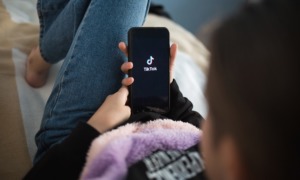 Pat Milam’s son Matthew began showing signs of severe schizophrenia in spring 2011. At various points, he told his doctors he was under CIA surveillance and living inside of a computer program.
Pat Milam’s son Matthew began showing signs of severe schizophrenia in spring 2011. At various points, he told his doctors he was under CIA surveillance and living inside of a computer program.
After being released from the hospital after one suicide attempt, Milam said things seemed to be improving for his son. And then, he found a collection of propane and gasoline canisters in his son’s room. Terrified, he called the police, who told him there was nothing they could do. “’It’s not against the law to have that inside your house,’” Milam was informed. “‘Call us if you have any trouble.’”
At 24, his son would commit suicide by opening a propane canister in his bedroom and shooting it with an improvised weapon; he was killed in the resulting explosion.
“I talked to the FBI about this, and one tank of propane is equal to about 33 pounds of dynamite,” Milam stated. Had the device completely detonated, the explosion, he said, would’ve leveled the house.
“Good people die every day,” Milam said. “More people will die, and good families will be destroyed, because we’re not doing anything about this now.”
Milam’s story was one of many discussed at a House Energy and Commerce Committee hearing titled “After Newtown: A National Conversation on Violence and Severe Mental Illness,” held Tuesday in Washington, D.C.
“We began examining mental health resources and programs across the federal spectrum in the wake of the Newtown, Conn. massacre,” began Oversight and Investigations Subcommittee Chairman Tim Murphy (R-Penn.) At the heart of the Sandy Hook shooting, as well as numerous other mass murders, Rep. Murphy said underlying mental illnesses — which affect more than 11 million Americans — are almost always present.
Rep. Murphy said the nation is wasting billions by increasing funding, but not the quality, of mental health care in the United States.
“It is not what is in a person’s hands that make their acts violent, but it is also what is in their minds,” he said.
“We are here to take mental illness out of the shadows and bring it into the light, and find some real, workable answers.”
Subcommittee ranking member Diana DeGette (D-Colo.) said mental illness affects virtually every family in America.
“In the weeks and months following Newtown, we have, as a nation, begun to engage in a really important and in-depth conversation about our views on violence, on guns and how we respond to mentally ill individuals,” she said. “I think we can all agree there’s no one solution, but these tragedies have all revealed significant gaps in many of our systems, including our nation’s mental health system.”
Numerous panelists were present at the event, including several individuals that have raised children with severe mental health issues. Among the speakers was author Pete Earley, who said his son “wears the face of mental illness.”
He recalled picking up his then college-aged son — who was diagnosed with bipolar disorder — after he stopped taking his medications. He had been wandering around New York for five days, Earley said. “He was convinced God had him on a special mission,” he stated. “During the car ride, my son would laugh one minute, and be sobbing the next.” His son refused to take any medications, screaming, “the pills are poison” to his father over and over.
Earley then took his son to a hospital in Fairfax, Va. “Virginia law at that time was specific,” Earley said. “Unless the person had an imminent danger to himself or someone else, you could not force them to get treatment.” Doctors advised Earley to bring his son back to them, he stated, “after he tries to kill you.”
He recalled watching his son sink deeper and deeper into illness; eventually, his son was sent to a mental health facility after he broke into someone’s home. Police officers suggested Earley “lie” to physicians and tell them his son had threatened to harm him. It was perhaps the only way, he recalled, to keep his son out of being sent to prison.
“What happened to my son,” he said, “was not an aberration.”
More than 400,000 individuals with bipolar disorder, schizophrenia and major depression reside in the nation’s jails, Earley said. “A half million are on probation,” he added, “and more than a million go through the criminal justice system every year.” He referred to the Los Angeles County Jail as the nation’s “largest mental health facility.” Many parents are rendered helpless due to civil rights laws, he said. Despite “sounding noble,” he said such laws wreak “havoc” for families when applied to individuals with brain disorders.
“I love my son, I want his civil rights protected,” he said. “But no father should ever be told ‘bring your son back, after he tries to kill someone.’”
Changing commitment criteria, Earley believes, is a vital first step to improving mental health treatment in the United States. However, even drastic changes to existing laws are fruitless, he added, if people with mental health needs have nowhere to turn to in their communities. In Fairfax, Earley said there was a two-week wait for individuals to get into treatment centers and six-week waits for people to get in contact with a case manager.
“And an 18-year wait,” he concluded, “to get housing if you had a mental illness.”
Liza Long gained national recognition when a blog post she authored shortly after the Newtown, Conn. Massacre, titled I am Adam Lanza’s Mother,” went viral.
Long’s son, currently 13 years-old, had been diagnosed with multiple mental health conditions. He was placed on a “cornucopia of pharmaceuticals,” and she remembers him telling her how badly “he wanted to be well.”
“Parents like me live in all kinds of fear,” she said. “Will my child be bullied for being different? Will my child be the bully?”
At one point, she said her son threatened to kill her, after she asked him to return several overdue library books. On another occasion, she recalled driving her son to a mental hospital, after he said he was planning suicide because he was grounded from playing video games.
Remedying the nation’s mental health care system, she said, was a truly bipartisan undertaking.
Too often, Long said that the only way individuals suffering from severe mental illnesses can get access to treatment is after they commit crimes. The nation will never be able to sync up mental and physical healthcare, she said, as long as prisons are the only places where young people and adults with severe mental disturbances can access services.
“I wrote in my blog that it’s time to talk about mental illness,” she continued. “And it’s time to act.”































